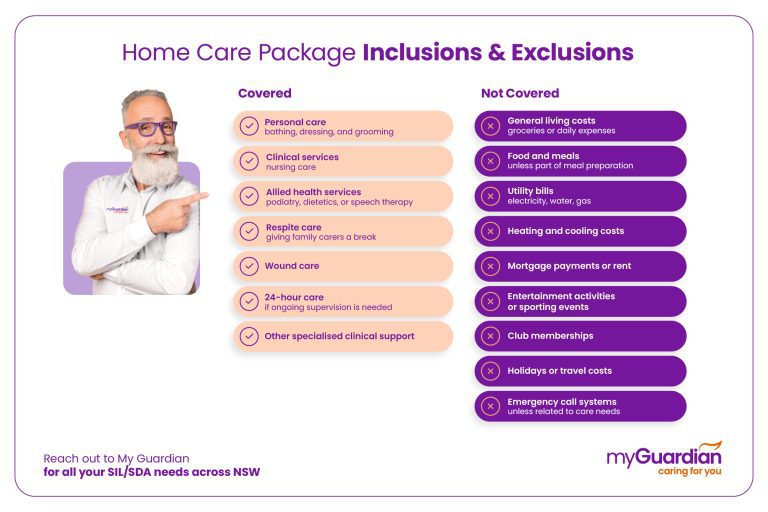Comparing the best-rated home care providers melbourne for disability support
Comparing the best-rated home care providers melbourne for disability support
Blog Article
All About Home Care Solutions for Individuals With Disabilities: NDIS Registered Assistance
Home care solutions under the NDIS play a crucial role in supporting people with handicaps. These solutions are developed to enhance day-to-day living through customized help, varying from personal like mobility support. Recognizing how to browse these options can be intricate. This review discovers the different aspects of NDIS home treatment, from readily available solutions to the option of carriers, highlighting important factors to consider for those looking for support. The journey towards empowered care begins right here.
Understanding the NDIS and Its Objective
The National Handicap Insurance Coverage Scheme (NDIS) works as a transformative structure made to offer support and services for people with disabilities. Developed to improve the lifestyle and assurance equitable access to vital sources, the NDIS equips individuals by offering personalized strategies tailored to their one-of-a-kind requirements. It intends to promote self-reliance, making it possible for people to pursue their personal objectives and aspirations.Through a structured strategy, the NDIS designates funding for different supports, consisting of education and learning, work assistance, and area involvement. This comprehensive scheme not just concentrates on immediate care but likewise highlights long-term developmental end results. By advertising option and control, the NDIS motivates individuals to pick their preferred provider, assuring that treatment straightens with their values and choices. Eventually, the NDIS stands for a considerable commitment to enhancing the lives of individuals with disabilities, promoting inclusivity, and building a more encouraging culture.
Kinds Of Home Treatment Services Available
Various kinds of home care services deal with individuals with impairments, largely concentrating on personal care support and break care alternatives. Individual care aid gives essential support with everyday tasks, while break care supplies momentary relief for key caretakers. Understanding these services is vital for ensuring the wellness of both individuals with disabilities and their family members.
Personal Treatment Support
While steering day-to-day life can offer obstacles for individuals with impairments, personal treatment help provides necessary support customized to their unique needs. This kind of home care solution includes a series of activities made to advertise self-reliance and improve high quality of life. Personal care assistants assist with everyday jobs such as bathing, clothing, brushing, and toileting, making certain people preserve personal health and convenience. They may additionally assist with meal preparation, drug administration, and wheelchair assistance. By providing customized care, these experts empower people to engage more totally in their social activities and everyday routines. Overall, individual care assistance plays a significant duty in cultivating dignity and autonomy for those with specials needs, enabling them to thrive in their home atmosphere.

Respite Treatment Options
Break treatment functions as a necessary source for families and caretakers of people with specials needs, supplying short-term relief from the demands of daily caregiving. This kind of solution can take different types, including in-home reprieve care, where trained experts visit the home to help with care tasks. Additionally, family members might decide for facility-based reprieve treatment, where people receive care in a specialized atmosphere, allowing caretakers to relax. In addition, some companies supply emergency situation break services for unexpected scenarios. These alternatives not only aid alleviate caretaker stress yet also advertise the health of individuals with disabilities by supplying them brand-new experiences and social communication. Overall, reprieve treatment plays a vital function in sustaining both caregivers and those they take care of.

How to Gain Access To NDIS Home Treatment Solutions
Accessing NDIS home treatment services includes understanding the qualification criteria set forth by the National Handicap Insurance System. People have to navigate an organized application process to secure the required assistance tailored to their demands. This section will certainly clear up both the qualification demands and the actions involved in making an application for solutions.
Qualification Standards Explained
To certify for NDIS home treatment services, individuals need to fulfill certain qualification criteria that analyze their conditions and demands. Applicants should be matured between 7 and 65 years and have a irreversible and considerable handicap that influences their capability to perform day-to-day activities. In addition, they have to be an Australian citizen, a permanent homeowner, or hold a Protected Unique Group Visa. The NDIS calls for evidence of the disability, generally with medical analyses or reports. People should show that they call for support to participate in social and economic life. These requirements assure that solutions are guided towards those that really need support, advertising self-reliance and boosted high quality of life for individuals with impairments.
Application Refine Actions
Can I Choose My Very Own Support Employees With NDIS?
The individual inquired whether they might pick their very own assistance workers under the NDIS structure. Generally, individuals have the adaptability to pick assistance employees, fostering individualized care that straightens with their specific requirements and preferences.
What Occurs if My Needs Adjustment After Obtaining Assistance?
They should communicate these adjustments to their solution supplier if a person's demands adjustment after receiving support. Modifications can be made to the care strategy, making certain that the support continues to be efficient and appropriate for their scenarios.

Exist Restricts on The Number Of Hours of Treatment I Can Obtain?
The individual made inquiries about potential limitations on the variety of care hours received. Usually, such limitations may exist based upon details plans or funding plans, highlighting the relevance of examining agreements and guidelines regularly.
Can I Use NDIS Financing for Home Adjustments?
The question of utilizing funding for home adjustments arises often. Normally, people might use NDIS funding for necessary modifications to their homes, ensuring access and safety and security, section upon conference particular qualification criteria and guidelines.
How Do I Manage Problems About My Home Care Services?
To attend to issues about home care services, people should initially record their worries. Then, they can connect directly with their service company, seeking resolution, or escalate the problem to relevant oversight bodies if essential. Home care solutions under the NDIS play a crucial role in supporting people with disabilities. Numerous kinds of home care services cater to individuals with disabilities, mainly concentrating on personal treatment support and reprieve care choices. support at home provider. Individual care assistance gives crucial assistance with everyday activities, while reprieve care offers short-term alleviation for primary caregivers. Family members may decide for facility-based respite treatment, where people receive care in a site here specific environment, allowing caregivers to take a break. How can families successfully manage the monetary elements of home care services for people with impairments?
Report this page